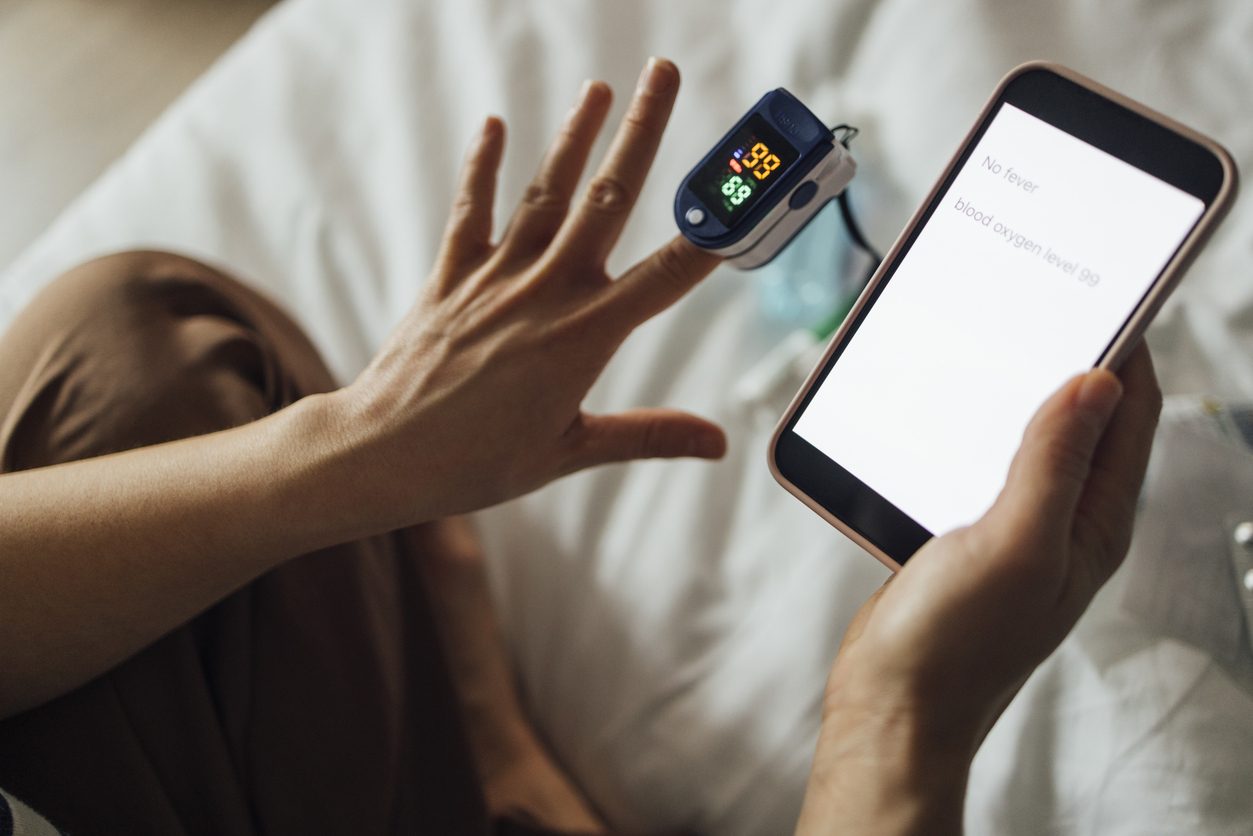Home » News and events »
New resources to improve patient and public involvement in health research

Research theme
 Patient-reported outcomes
Patient-reported outcomes People involved
Patient-reported Outcomes Theme Lead
Patient-reported Outcomes Theme Lead
Patients and members of the public will be able to more easily take part in impactful research thanks to a new tool developed by the University of Birmingham’s work on Long COVID.
These resources are detailed in a paper published yesterday in Nature Medicine from researchers working within the University of Birmingham’s Institute of Applied Health Research, the NIHR Birmingham Biomedical Research Centre (BRC) and NIHR Applied Research Collaboration West Midlands, reporting the evaluation of patient and public involvement and engagement (PPIE) for the Therapies for Long COVID in non-hospitalised individuals (TLC) Study.
Researchers can use the new tool to guide in the planning, implementation and evaluation of projects that work with patient and public groups. The tool draws on best practice and enables researchers to follow checklists to ensure that all aspects of PPIE work are incorporated into research design.
“Although we provide checklists, this should not be a tick box exercise – our work aims to support a considered approach to working in partnership with patients and the public to influence and shape research.”
– Professor Melanie Calvert
The TLC Study was funded by the UK’s National Institute for Health and Care Research (NIHR) and UK Research and Innovation to investigate the burden of Long COVID on patients, provide a better understanding of the condition, and explore potential interventions. As the long-term effects of Long COVID are yet to be fully understood, involving individuals with lived experiences of the condition was key to the success of the study.
The paper covers the impacts and outcomes of PPIE throughout all stages of research, reflecting on areas of success and improvement – from the development of the grant application and study set up, to study design, the co-creation of data gathering tools and interventions, and the dissemination of the findings.
Researchers faced especially tight time and resource constraints, as the TLC study was conducted in the context of urgent population-level medical need and its outcomes would inform national policy. However, by adopting a flexible approach with public contributors and providing different opportunities and modalities to get involved, the group succeeded in maximising patient involvement within the constraints of the study timeline.
As a legacy of this work, the TLC Study Group created two checklists with key and desirable considerations for PPI to be used in all studies. These are based on items that were deemed the most important by patient partners and researchers involved in the project, and cover all stages and aspects of research.
“We hope that other researchers can draw on our experience and use the checklists which we have developed . . . to facilitate patient and public involvement and engagement in future health research.”
– Dr Lee Aiyegbusi
The full list of domains on the checklists comprises: development of grant proposal, project set-up, study design, undertaking research, dissemination of study findings and engagement, practical considerations, membership of PPIE group, and evaluation of PPIE. By using this tool, other medical researchers will now be able to better plan, implement, and evaluate PPIE for future studies.
Professor Melanie Calvert, Director of the University of Birmingham’s Centre for Patient-Reported Outcomes Research (CPROR), co-lead of the BRC Patient Reported Outcomes research theme and co-PI for the TLC study, said: “Patient partners play a central role in our research team, helping us understand what matters to them and ways to make our research more inclusive and accessible. Building relationships is key, but it takes time and there is a lot to consider to ensure meaningful engagement. Together with our patient partners, we have summarised key considerations for patient and public involvement in health research. Although we provide checklists, this should not be a tick box exercise – our work aims to support a considered approach to working in partnership with patients and the public to influence and shape research, that can in turn inform care and improve health outcomes.”
Dr Lee Aiyegbusi, Associate Professor at the University of Birmingham’s CPROR, co-lead of the BRC Patient Reported Outcomes research theme, and PPI lead of the TLC study, commented: “The active involvement and engagement of patient partners has had tangible and substantial impacts on the TLC study. We hope that other researchers can draw on our experience and use the checklists which we have developed and reported in this article to facilitate patient and public involvement and engagement in future health research.”
Patient partner Flic Jeyes said: “Research is fantastic in moving the world forward and providing us with evidence to prepare us all for tomorrow. Including PPI in research ensures that studies focus on real life needs, as lived and breathed by real people, and have a tangible impact for the communities we live in.
“Working with the University of Birmingham as a PPI partner to the TLC study I have felt empowered to contribute, while being encouraged to respect my own needs and limitations as someone living with Long COVID. I have been able to grow in confidence, offer suggestions that influenced the direction of the study, and learnt to balance that with a long-term health condition.”
-
Notes for editors
For media enquiries please contact Tim Mayo, Press Office, University of Birmingham tel: +44 (0)7920 405040: email: t.mayo@bham.ac.uk
About the University of Birmingham
The University of Birmingham is ranked amongst the world’s top 100 institutions. Its work brings people from across the world to Birmingham, including researchers, teachers and more than 6,500 international students from over 150 countries. The Centre for Patient Reported Outcomes Research has led international initiatives which aim to optimise the use of patient-reported outcomes in clinical trials and routine care, to improve service delivery, enhance patient care and outcomes and ensure that the patient perspective is at the heart of health research and decision-making.
The NIHR Birmingham Biomedical Research Centre (BRC) is part of the NIHR and hosted by University Hospitals Birmingham NHS Foundation Trust in partnership with the University of Birmingham.
About the National Institute for Health and Care Research
The mission of the National Institute for Health and Care Research (NIHR) is to improve the health and wealth of the nation through research. We do this by:
- Funding high quality, timely research that benefits the NHS, public health and social care;
- Investing in world-class expertise, facilities and a skilled delivery workforce to translate discoveries into improved treatments and services;
- Partnering with patients, service users, carers and communities, improving the relevance, quality and impact of our research;
- Attracting, training and supporting the best researchers to tackle complex health and social care challenges;
- Collaborating with other public funders, charities and industry to help shape a cohesive and globally competitive research system;
- Funding applied global health research and training to meet the needs of the poorest people in low and middle-income countries.
NIHR is funded by the Department of Health and Social Care. Its work in low and middle-income countries is principally funded through UK Aid from the UK government.
About UK Research and Innovation
UK Research and Innovation (UKRI) is the UK’s largest public funder of research and innovation and is composed of seven disciplinary research councils, Innovate UK and Research England. Annually, we invest more than £8 billion to advance our understanding of people and the world around us and deliver benefits for society, the economy and the environment. Working in partnership, we aim to shape a more connected and agile research and innovation system in the UK that is an integral part of society, giving everyone the opportunity to participate and to benefit.
You may also like




